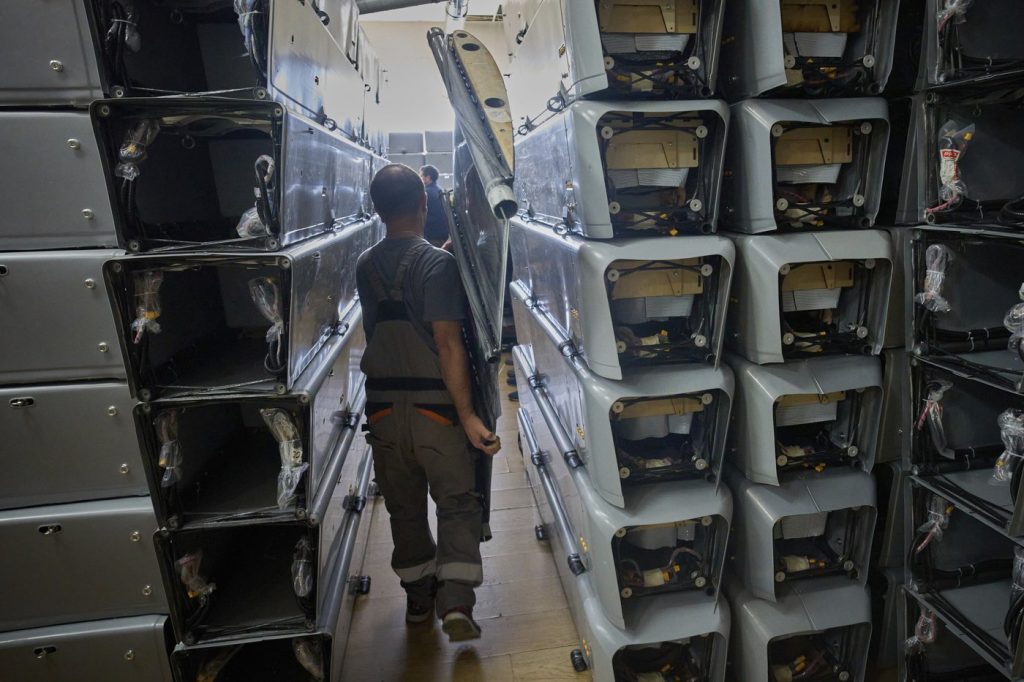KYIV, Ukraine (AP) – The defense minister of Poland, Wladyslaw Kosiniak-Kamysz, made a significant visit to Kyiv on Thursday to seek Ukrainian assistance in enhancing Poland's drone warfare capabilities. This trip comes in the aftermath of a recent incident where Russian drones breached Polish airspace, highlighting the vulnerabilities within NATO regarding drone warfare. The incident prompted NATO to deploy fighter jets to intercept the drones, raising concerns over the security of Eastern Europe.
The integration of drones into military strategies has marked a pivotal shift in modern warfare, particularly since the onset of the conflict spurred by Russia's invasion of Ukraine over three years ago. Drones have become central to both defensive and offensive operations, and nations globally are eager to adopt and refine these rapidly advancing technological innovations. The Polish defense ministry announced plans to formalize cooperation with Ukraine in drone operations through a forthcoming agreement.
Wladyslaw Kosiniak-Kamysz stated, “We will be signing an agreement concerning cooperation between the (defense) ministries, but also acquiring capabilities when it comes to operating drones.” This cooperative effort signifies a strategic initiative aimed at bolstering Poland's military capabilities in response to evolving threats.
The recent incursion of Russian drones into Poland has amplified existing tensions in the region. Despite ongoing diplomatic efforts, including a U.S.-Russia summit in Alaska aimed at resolving the conflict, the war between Russia and Ukraine remains unresolved. NATO's immediate response to the drone threat included reinforcing its defensive posture along its eastern border with Belarus, Russia, and Ukraine, emphasizing the alliance's commitment to regional stability and security.
In parallel, Russia has been showcasing its military strength through extensive joint exercises with Belarus, which has intensified concerns among Western nations regarding Moscow's long-term intentions in the area. As part of the ongoing conflict, Ukraine's air defenses reported successfully neutralizing or jamming 48 out of 75 Russian drones that were launched in a recent attack. The Ukrainian Air Force conveyed this information on Thursday, underlining the ongoing challenges the country faces in protecting its airspace.
Additionally, Ukraine's infrastructure continues to be a target of Russian strikes. Recent attacks have focused specifically on railway and energy infrastructure, consistent with a broader strategy aimed at disrupting supply lines and heightening social tensions within Ukraine. Ukrainian President Volodymyr Zelenskyy remarked that these strikes serve to undermine logistical capabilities and threaten the stability of civil society.
This evolving landscape of drone warfare and military collaboration among Eastern European nations marks a critical juncture in the ongoing conflict. The interactions between Poland and Ukraine, as well as NATO's responses to increasing threats, reflect a concerted effort to adapt to the modern battlefield's demands. As the situation unfolds, the implications for regional security and international relations will remain significant.
For ongoing updates and developments regarding the conflict in Ukraine, further coverage can be followed through dedicated news platforms.










